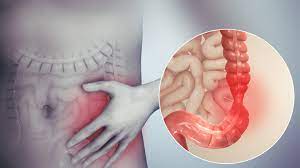Protein shakes and pre-workout mixes are popular among gym-goers, but they might signal a deeper issue for some young adults. A recent study published on February 19 in the journal PLOS Mental Health has linked the use of multiple muscle-building supplements to muscle dysmorphia, a body image disorder characterized by an obsession with muscle size and leanness.
According to the study, individuals using six or more dietary supplements intended for muscle building exhibited greater symptoms of muscle dysmorphia. “The use of six different dietary supplements intended for muscle building was associated with greater symptoms of muscle dysmorphia,” said lead author Kyle Ganson, an assistant professor at the Factor-Inwentash Faculty of Social Work at the University of Toronto, in an email to CNN.
The research team analyzed data from 2,731 individuals between the ages of 16 and 30. It found that 80% of participants had used at least one muscle-building supplement in the past year. Protein bars were the most commonly used supplement (63.4%), followed closely by whey protein shakes or powders (63.1%), and creatine monohydrate (25.5%).
The study discovered that as the number of supplements used increased, so did the likelihood of exhibiting signs of muscle dysmorphia. Symptoms included excessive exercise, strict dieting, and emotional distress related to body image concerns.
Muscle dysmorphia is a disorder in which individuals become preoccupied with achieving a muscular physique, even if they already possess a well-developed body. “People who experience muscle dysmorphia often have significant challenges in their social lives and can experience severe emotional distress,” Ganson noted. “Not to mention, these individuals may go to extreme lengths to achieve their body ideal, such as using anabolic steroids.”
A previous study from 2022 found that 36% of young males reported using protein powders and shakes, while 10% used other muscle-building substances such as creatine and growth hormones. Additionally, 2.2% of young adult males admitted to using anabolic steroids.
Experts also highlighted the dangers of certain supplement consumption methods, such as “dry scooping,” where individuals ingest protein powder without diluting it in water. “Dry scooping is a particularly dangerous practice because it provides a high and potent dose of a product meant to be diluted,” explained Dr. Jason Nagata, an associate professor of pediatrics at the University of California, San Francisco, and co-author of the study. “This can lead to toxic effects.”
Social media plays a significant role in influencing body image concerns, especially among teenagers. Platforms are flooded with posts showcasing muscle-building supplements and anabolic steroids, often highlighting their benefits without acknowledging the potential risks. Young men, in particular, are more likely to have public social media profiles where they display their physiques, leading to increased body comparisons.
“Men’s bodies are on display more than ever on social media, especially through influencer accounts,” Nagata added. “The idealized bodies that influencers post may be heavily filtered or the best of hundreds of photos.”
Addressing muscle dysmorphia often requires cognitive behavioral therapy (CBT) to help individuals reframe negative thoughts about body image. In some cases, medications such as antidepressants or anxiety treatments may be beneficial. Researchers emphasize the importance of support from family, coaches, and healthcare providers in identifying early warning signs of the disorder.
Nagata concluded, “One important step is to challenge the information and ideals coming out of social media, especially for teens who are undergoing rapid changes and making frequent comparisons with others during puberty.”
Disclaimer: This article is for informational purposes only and does not constitute medical advice. Readers experiencing body image concerns or mental health issues should seek guidance from a qualified healthcare professional.












